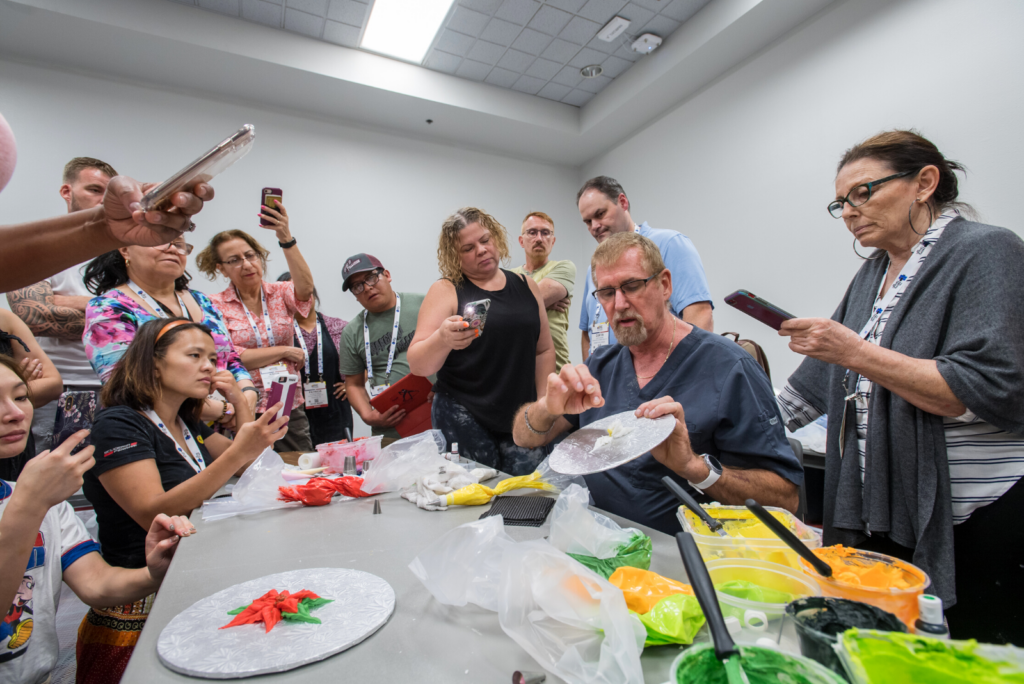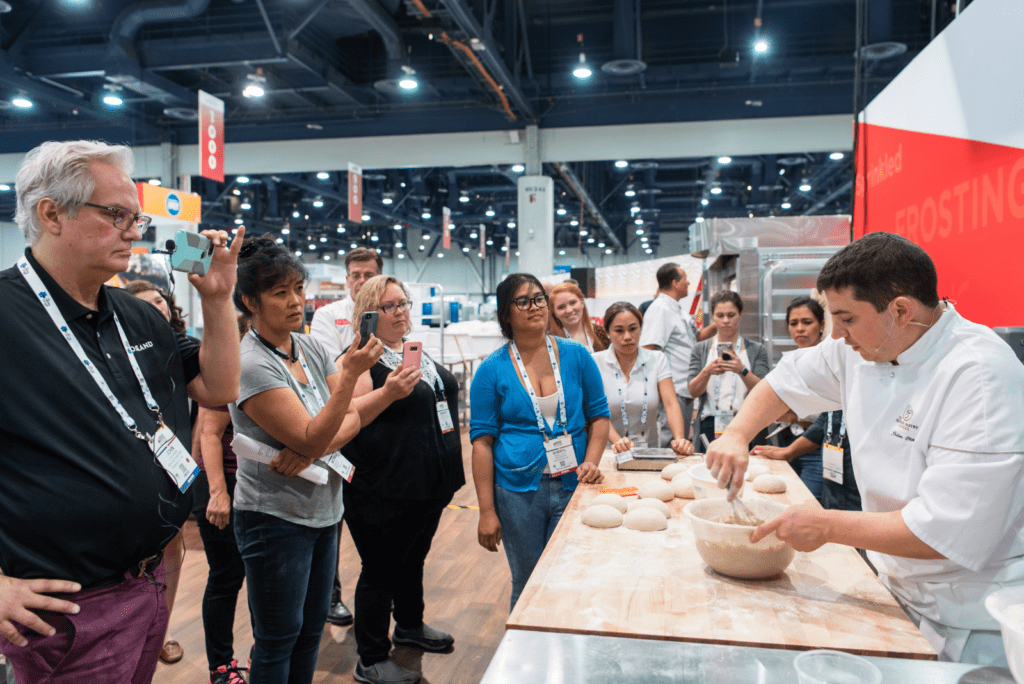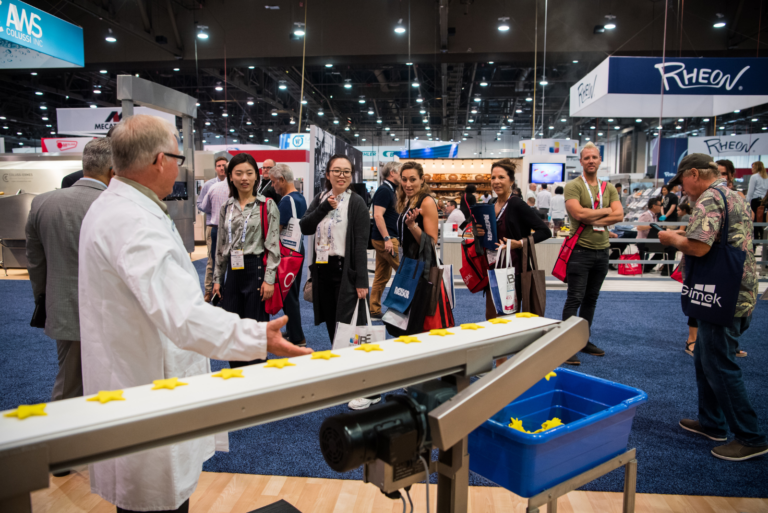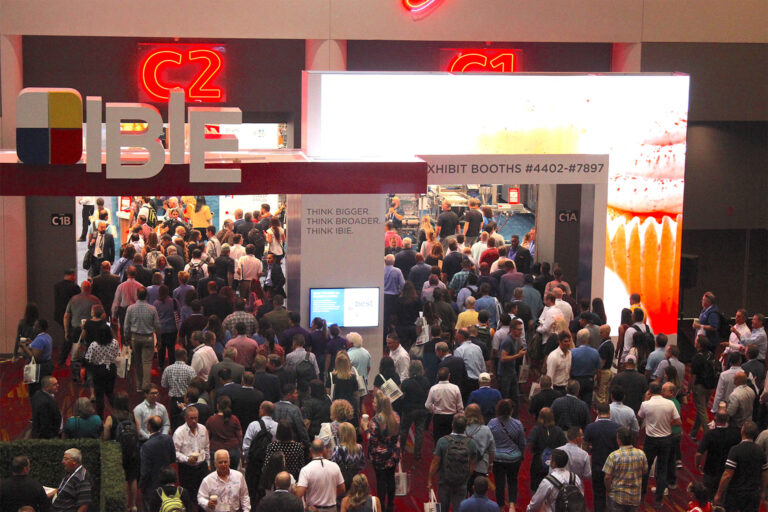While the need for education is clear and present, how the training is developed and delivered is still a learning process. Given the drastic changes over the past two years, the baking industry has weighted content and dissemination equally.
New delivery methods such as remote learning and virtual reality have created efficiencies for bakers at all levels who, for whatever reason, can’t get out of the facility to attend classes.
“While there’s a large amount of people who are ready for things to go back to normal, there’s also a subset of people who, through remote learning, have realized efficiencies they want to maintain,” Bowers said.
As these efficiencies have been achieved, bakers are seeing how education can impact the bottom line more than ever.
“If you can train and optimize your employees so they understand the process, then it goes beyond just watching dough dump into the depositor,” Moore said. “They understand how something like adding in an extra pound of flour can really affect the final product. If they understand the process, you’re going to save money in your operation. And that, in turn, could help fund more education.”
RBA has used the upheaval that occurred in 2020 and 2021 to refine not only the content it offers but also how it’s been delivered, and that has helped retail bakery owners develop their staff while streamlining their business as well.
“We have learned as an association so much more about how to deliver information,” Shanahan-Haas said. “We were somewhat standardized with Roadshows and certifications that it had become verbatim. We’ve really changed that in the past two years.”
Marrying the old with the new
It’s true that the pandemic forced the industry to take everything online, and that provided learning opportunities for all.
“Everyone is more tech savvy now, and that will help us all in our careers,” Moore said. “We’ve all had a crash course in video and audio settings, things like that. At ABA, we’ve had record attendance for our webinars and our virtual convention. We had attendance from people we’d never engaged with before because of these new opportunities we had provided.”
ABA has been no stranger to virtual education platforms with online options for courses in its Bakers Manufacturing Academy and hybrid FTRAC Food Safety Professionals Groups meetings in addition to traditional offerings like Front Line Professionals programs.
The RBA team has also sharpened its digital skills to serve as a conduit between members and their suppliers to help fill some of those gaps.
When it comes to digital and virtual learning, especially for training purposes, Bowers noted that a big element in this evolution is expectation management.
“There were periods when suppliers couldn’t go into the bakeries,” she said. “Those suppliers had no choice but to train customers virtually, but the expectation was that they still had to deliver the same level of training they’d always done when they were able to walk in the door.”
Last year, BEMA also introduced a virtual Workforce Edition component to its annual convention, providing exclusive education opportunities for junior and mid-level employees. This digital component provided a new style of networking and education.
“We wanted to go outside the typical attendance and dive deeper into membership with workforce-related offerings in smaller groups,” Bowers said.



 While virtual tools have given the industry new ways to learn — and in some cases increased engagement — baking is a sensory craft, and this workforce is craving a sensory experience, especially in a teaching environment. The IBIE education program is designed to bring engagement to the in-person platform, breathing new life into the classroom setting the industry expects from IBIEducate programming.
While virtual tools have given the industry new ways to learn — and in some cases increased engagement — baking is a sensory craft, and this workforce is craving a sensory experience, especially in a teaching environment. The IBIE education program is designed to bring engagement to the in-person platform, breathing new life into the classroom setting the industry expects from IBIEducate programming.







